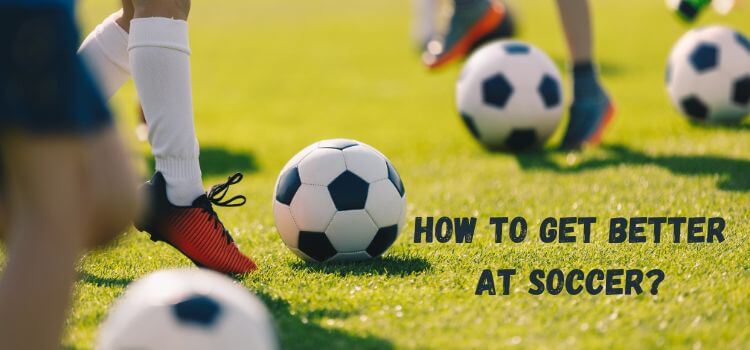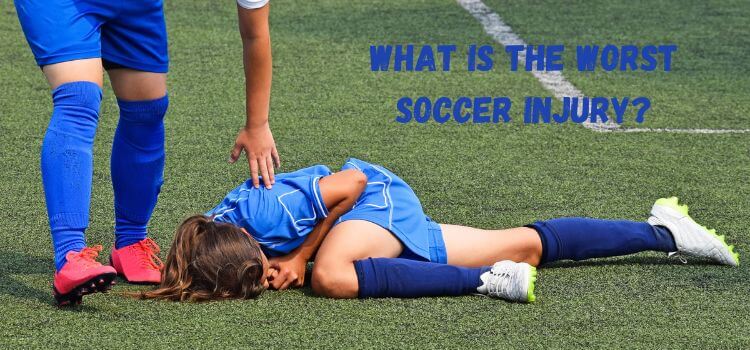As an Amazon Associate, I earn from qualifying purchases
Have you ever heard someone claim that playing soccer might make you shorter? It’s a surprising and odd statement, yet it has made the rounds in various discussions. We will examine this myth in great detail and see if it is valid in this piece. We’ll look at the science of human growth, the physical demands of soccer, and what research has to say about sports and height.

Understanding Human Growth
How Growth Happens
Human growth is a complex process influenced by genetics, nutrition, and overall health. Most of our height is determined by our genetic makeup, but environmental factors like diet and exercise also play crucial roles. The body experiences fast growth spurts during childhood and adolescence, especially puberty.
Factors Influencing Height
Several factors affect how tall a person will grow. These include genetics, hormones (especially growth and thyroid hormones), nutrition, physical activity, and overall health. Adequate sleep and avoiding chronic stress are also essential for healthy growth.
Physical Demands of Soccer
The Rigorous Training
Soccer demands strength, agility, endurance, and coordination. It is a physically demanding sport. Players undergo rigorous training sessions to build muscle strength, enhance cardiovascular health, and improve their fitness. This training is designed to optimize performance on the field, but does it impact growth?
Impact on Muscles and Bones
Physical activity, including playing soccer, positively impacts muscle and bone health. Weight-bearing exercises like running and jumping stimulate bone growth and increase bone density. These activities strengthen the skeletal system, making it less prone to injuries.
Growth During Adolescence
Growth Spurts
Adolescence is characterized by growth spurts, where significant height increases occur over a short period. During this time, growth plates in the long bones remain open, allowing for rapid growth. Proper nutrition and physical activity are essential during this period to support healthy development.
How Exercise Influences Growth
Exercise, including soccer, is vital in supporting growth during adolescence. It encourages the production of growth hormones and aids in the formation of strong bones and muscles. However, excessive training without adequate rest can lead to overuse injuries and potentially affect growth negatively.
The Science Behind Height and Sports
Studies on Athletes’ Heights
Numerous research have looked into the connection between height and involvement in sports. Research indicates that athletes, including soccer players, have a smooth growth compared to their non-athletic peers. In actuality, more healthful growth patterns are linked to consistent physical activity.
Comparison with Non-Athletes
When comparing athletes to non-athletes, no significant difference in height can be attributed to playing sports. Other factors, such as genetics and nutrition, play more prominent roles in determining height.
Myth vs. Reality: Height and Soccer
Origin of the Myth
The myth that playing soccer makes you shorter likely stems from anecdotal observations and misconceptions. Seeing shorter players on the field might lead some to believe that soccer affects height, but scientific evidence does not support this.
Debunking the Myth
Scientific research consistently shows that playing soccer does not stunt growth. The benefits of physical activity extend to growth and general health. The variation in heights among soccer players reflects natural diversity rather than the impact of the sport on growth.
Case Studies of Professional Soccer Players
Famous Short Soccer Players
Many successful soccer players like Lionel Messi and Diego Maradona are shorter than average. Their height has not hindered their performance; their agility and speed have been assets on the field.
Famous Tall Soccer Players
Conversely, many tall soccer players, like Peter Crouch and Zlatan Ibrahimović, excel in the sport. This further illustrates that height variation is normal and not influenced by playing soccer.
Impact of Nutrition on Growth
Importance of Diet
Nutrition is crucial for growth and development, particularly during childhood and adolescence. The consumption of a diet that is well-balanced and abundant in proteins, vitamins, and minerals is beneficial to the growth and development of humans.
Dietary Needs of Soccer Players
Soccer players have increased nutritional needs due to their high physical activity levels. Adequate intake of calories, proteins, and essential nutrients ensures they have the energy and building blocks needed for growth and repair.
Soccer and Bone Health
Bone Density and Strength
Playing soccer enhances bone density and strength due to the weight-bearing nature of the sport. Strong bones are less likely to fracture and are essential for overall skeletal health.
Risk of Injuries
While soccer strengthens bones, it also carries a risk of injuries, particularly to the growth plates of young players. Proper training, rest, and injury prevention strategies are vital to minimize these risks.
Psychological Factors
Mental Stress and Growth
Chronic stress can negatively impact growth by interfering with hormone production. Young athletes need to manage stress effectively to support their physical development.
Body Image in Young Athletes
Body image concerns can affect young athletes, especially if they feel pressure to conform to specific height standards. Promoting a positive body image and emphasizing general health more than height is vital.
Growth Plate Injuries
Understanding Growth Plates
The patches of growing tissue at the ends of long bones are called growth plates. They are responsible for bone growth and are vulnerable to injury, especially in young athletes.
Common Injuries in Soccer
Growth plate injuries can occur due to repetitive stress or acute trauma. Proper training techniques, adequate rest, and prompt medical attention are essential to prevent and manage these injuries.
Preventive Measures for Healthy Growth
Proper Training Techniques
Implementing proper training techniques reduces the risk of injuries and supports healthy growth. This includes warm-ups, cool-downs, and exercises that promote flexibility and strength.
Importance of Rest and Recovery
Adequate rest and recovery are essential for growth and preventing overuse injuries. Sleep and recovery time are important for young athletes so that their bodies may grow and heal.
Parental and Coaching Guidance
Supporting Young Athletes
Coaches and parents are essential in helping young athletes develop healthily. Encouraging balanced nutrition, proper training, and rest helps ensure they develop properly.
Educating About Myths and Facts
Educating young athletes about myths and facts related to growth and sports can help dispel misconceptions and promote a healthier approach to sports participation.
Long-Term Effects of Playing Soccer
Physical Health in Adulthood
Playing soccer has long-term benefits for physical health, including improved cardiovascular health, muscle strength, and bone density. These benefits contribute to overall well-being in adulthood.
Career Longevity
Many professional soccer players enjoy long careers without experiencing adverse effects on their height or overall health. Maintaining proper training, nutrition, and injury prevention strategies is critical to longevity in the sport.
Conclusion
In conclusion, scientific evidence does not support the myth that playing soccer makes you shorter. Physical activity, including soccer, promotes healthy growth and development. Genetics, nutrition, and overall health are more significant in determining height. Encouraging a balanced approach to sports and proper guidance from parents and coaches can help young athletes thrive on and off the field.
FAQs
No, playing soccer does not negatively affect height growth in children. Physical activity promotes overall health and development.
While balanced training combined with appropriate rest promotes healthy development, overtraining without sufficient rest might result in injuries that could hinder growth.
Playing soccer improves cardiovascular health, builds muscle strength, enhances coordination, and promotes social skills and teamwork.
Parents can ensure healthy growth by providing a balanced diet, encouraging proper training techniques, ensuring adequate rest, and supporting their child’s overall well-being.
Most sports do not negatively affect height when practiced with proper training and rest. Extreme overtraining and injuries can impact growth, but this is rare with balanced sports participation.
Read Our More Articles
- How to Prepare for a Soccer Game: Strategies for Success
- How to Recover After a Soccer Game: Tips for a Smooth Recovery
- How Many Levels Are There in Soccer Super Star Game?
As an Amazon Associate, I earn from qualifying purchases


